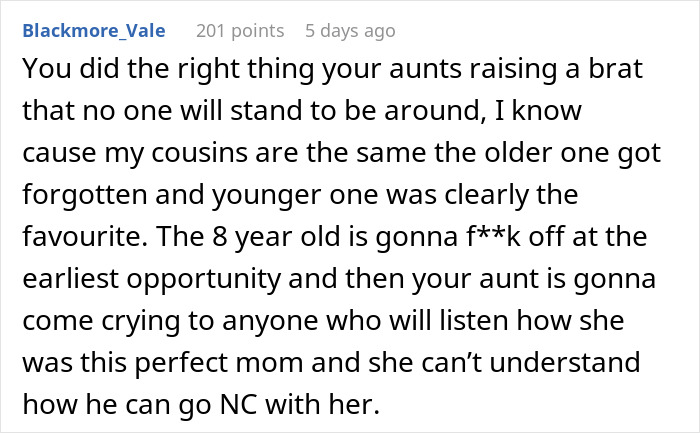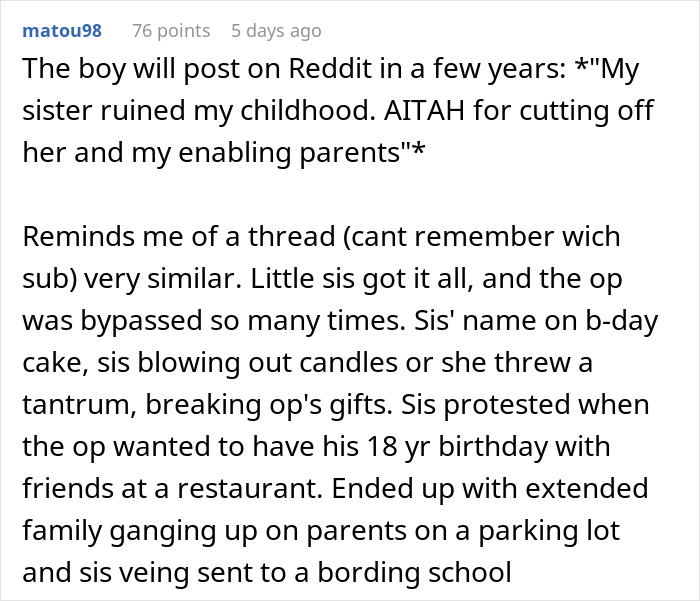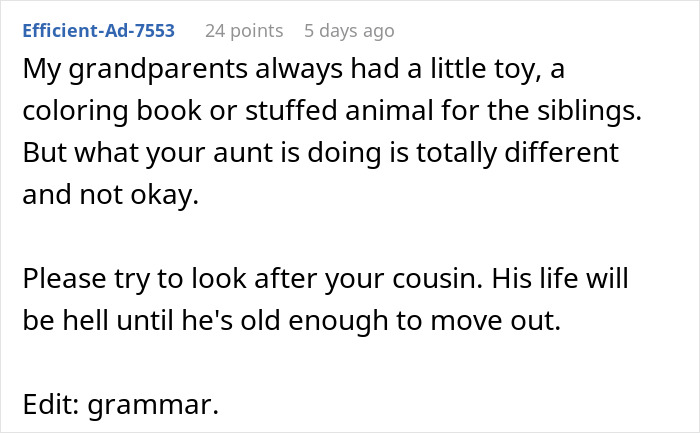Whether they grow up to love or hate celebrating their birthday, most people arguably love their b-days as kids. And why wouldn’t they? All the extra attention, the gifts, and not to mention the cake—none of these make one’s life any worse.
Well, for this redditor’s cousin, his birthday only let him down, as his mother decided to celebrate both him and his sister when her birthday wasn’t even close. Not only that, she demanded that guests bring gifts for both of the children, too. Scroll down to find the full story below.
Their birthday is a day many kids can’t wait to celebrate
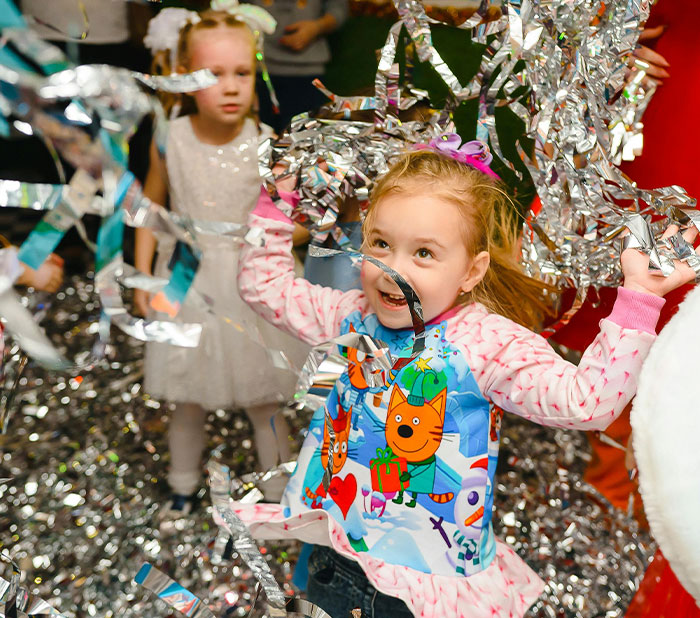
Image credits: samaraagenstvo feeria (not the actual photo)
This 8-year-old’s birthday was ruined, as his mom demanded that guests celebrate his sister, too
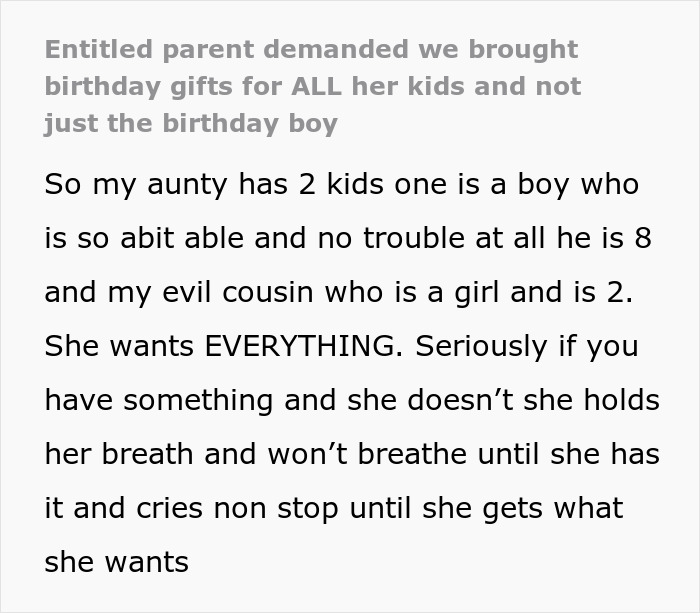



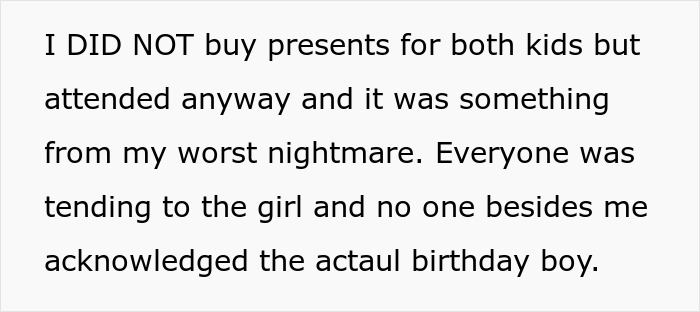

Image credits: Mikhail Nilov (not the actual photo)

Image source: Longlostneverland
Children tend to want parents’ undivided attention

Image credits: Keira Burto (not the actual photo)
It’s no secret that kids need attention and affection growing up, as feeling heard and seen is crucial for a developing human being. That’s likely one of the reasons why toddlers scream bloody murder if someone wants to have a conversation longer than two minutes with their mother without paying too much attention to them.
In families with more than one child, moms and dads have to find a way to navigate dividing their attention and affection equally, so no one feels left out or neglected; or at least they should in an ideal world. However, many kids grow up facing favoritism and watch their needs go unattended while their sibling gets everything they want on a silver platter.
According to the Institute for Family Studies (IFS), quite a few people who grew up with a sibling believe that their parents had a favorite; 40% of Americans say theirs did. As for who said favorites were, men were reportedly put on the pedestal more than their female counterparts: surveys found that roughly a third of men whose parents had a favorite child believe they were the favorite, while out of female respondents, less than a quarter do.
Parents playing favorites among children can have detrimental effects on their own relationship even as adults
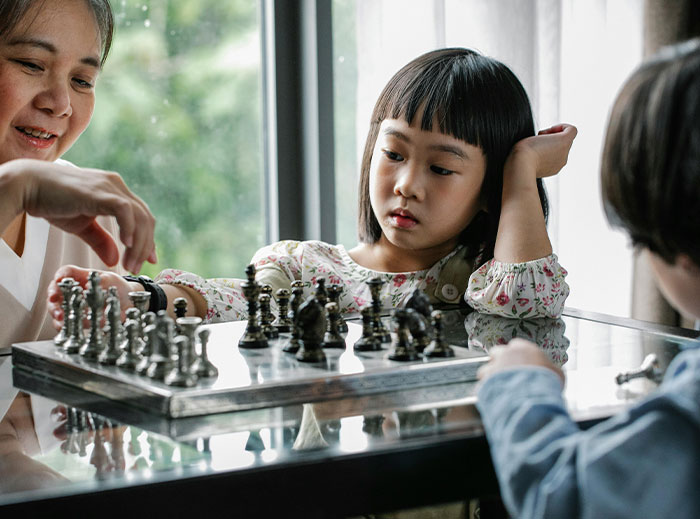
Image credits: Alex Green (not the actual photo)
According to the IFS, it’s the youngest children who are most likely to report being the favorite in the family: nearly 40% of Americans in such a position say they were (compared to 27% of the oldest siblings who saw themselves as a favorite). Surveys reveal that middle children would rarely consider themselves their parents’ favorite, with only one-in-five believing that they were.
Needless to say, parents giving preferential treatment to one or some of their children can have detrimental effects on both their own relationship with the kids as well as the bond between the siblings themselves. IFS pointed out that even as adults, people tend to feel the aftermath of the unevenly distributed love and attention, as those who saw favoritism in their family report being less satisfied with their sibling relationship than those who didn’t.
Research on the role of perceived maternal favoritism in sibling relations in midlife found that recollections of preferential treatment from childhood affected the level of closeness as well as the level of conflict among brothers and sisters. Even though they tend to avoid conflict and increase harmony later in life, they reportedly find it difficult to ignore their mother preferring one child over the other even as adults.
Quite a few netizens suggested that the redditor’s aunt playing favorites and neglecting her son on his birthday might lead to detrimental effects on their relationship in the future, too, and pointed out that he might even go no contact with her later in life.
Fellow netizens shared their thoughts in the comments, many of them felt bad for the little boy


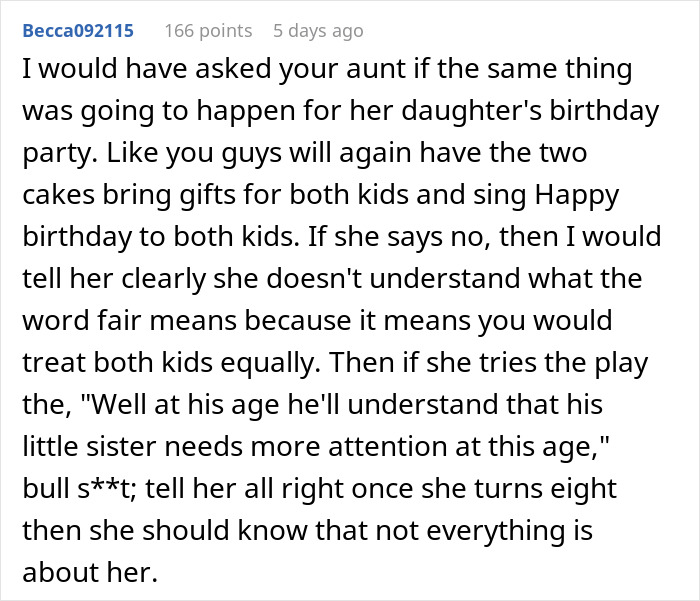



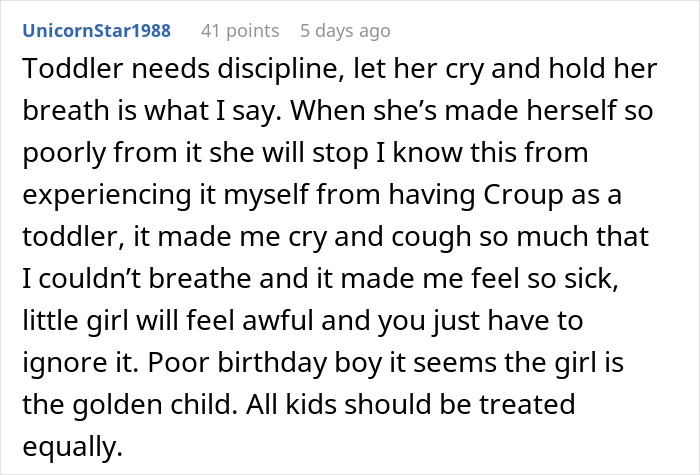




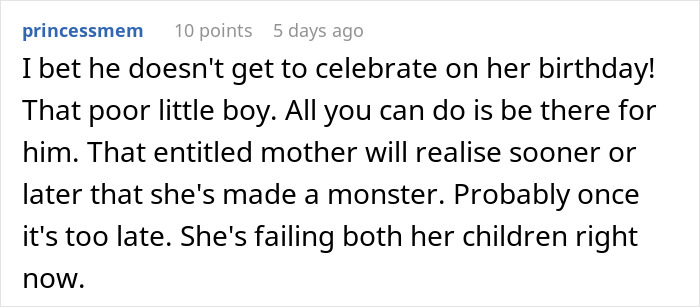
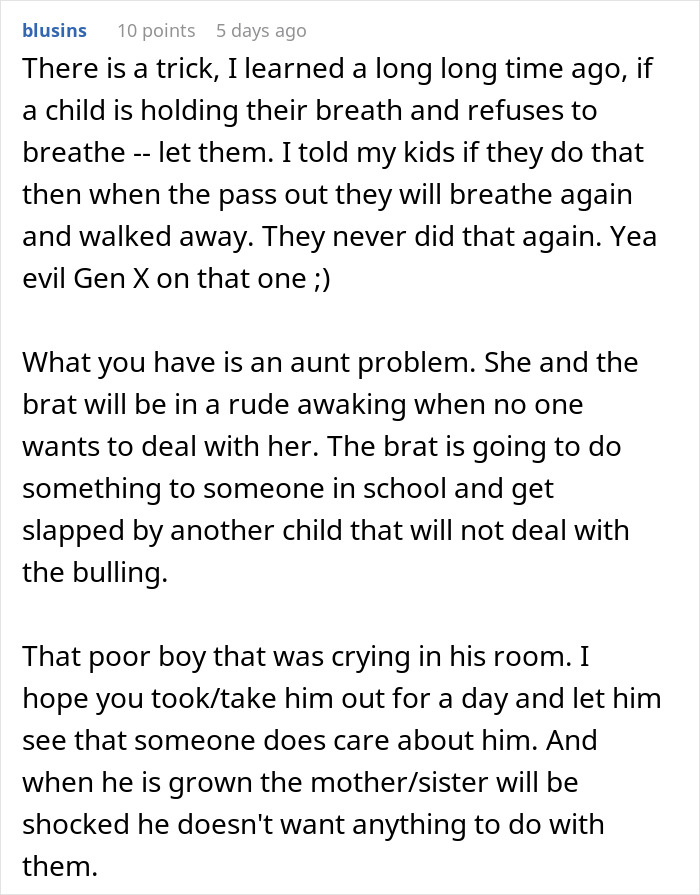

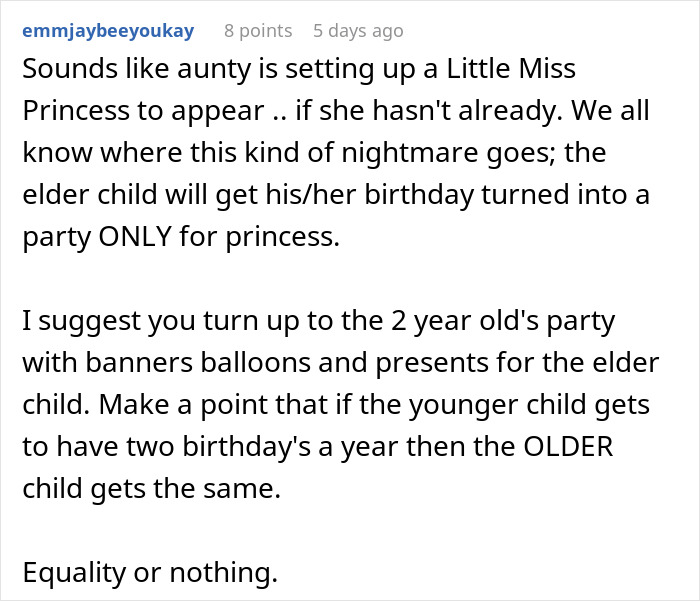

Some discussed similar situations
